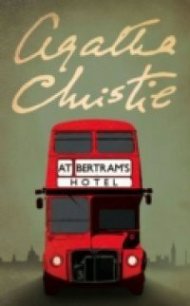Alls Wel that ends Well - Шекспир Уильям (книги без регистрации полные версии txt) 📗
Of six preceding ancestors, that gem
Conferr'd by testament to th' sequent issue,
Hath it been ow'd and worn. This is his wife:
That ring's a thousand proofs.
KING. Methought you said
You saw one here in court could witness it.
DIANA. I did, my lord, but loath am to produce
So bad an instrument; his name's Parolles.
LAFEU. I saw the man to-day, if man he be.
KING. Find him, and bring him hither. Exit an ATTENDANT
BERTRAM. What of him?
He's quoted for a most perfidious slave,
With all the spots o' th' world tax'd and debauch'd,
Whose nature sickens but to speak a truth.
Am I or that or this for what he'll utter
That will speak anything?
KING. She hath that ring of yours.
BERTRAM. I think she has. Certain it is I lik'd her,
And boarded her i' th' wanton way of youth.
She knew her distance, and did angle for me,
Madding my eagerness with her restraint,
As all impediments in fancy's course
Are motives of more fancy; and, in fine,
Her infinite cunning with her modern grace
Subdu'd me to her rate. She got the ring;
And I had that which any inferior might
At market-price have bought.
DIANA. I must be patient.
You that have turn'd off a first so noble wife
May justly diet me. I pray you yet-
Since you lack virtue, I will lose a husband-
Send for your ring, I will return it home,
And give me mine again.
BERTRAM. I have it not.
KING. What ring was yours, I pray you?
DIANA. Sir, much like
The same upon your finger.
KING. Know you this ring? This ring was his of late.
DIANA. And this was it I gave him, being abed.
KING. The story, then, goes false you threw it him
Out of a casement.
DIANA. I have spoke the truth.
Enter PAROLLES
BERTRAM. My lord, I do confess the ring was hers.
KING. You boggle shrewdly; every feather starts you.
Is this the man you speak of?
DIANA. Ay, my lord.
KING. Tell me, sirrah-but tell me true I charge you,
Not fearing the displeasure of your master,
Which, on your just proceeding, I'll keep off-
By him and by this woman here what know you?
PAROLLES. So please your Majesty, my master hath been an honourable
gentleman; tricks he hath had in him, which gentlemen have.
KING. Come, come, to th' purpose. Did he love this woman?
PAROLLES. Faith, sir, he did love her; but how?
KING. How, I pray you?
PAROLLES. He did love her, sir, as a gentleman loves a woman.
KING. How is that?
PAROLLES. He lov'd her, sir, and lov'd her not.
KING. As thou art a knave and no knave.
What an equivocal companion is this!
PAROLLES. I am a poor man, and at your Majesty's command.
LAFEU. He's a good drum, my lord, but a naughty orator.
DIANA. Do you know he promis'd me marriage?
PAROLLES. Faith, I know more than I'll speak.
KING. But wilt thou not speak all thou know'st?
PAROLLES. Yes, so please your Majesty. I did go between them, as I
said; but more than that, he loved her-for indeed he was mad for
her, and talk'd of Satan, and of Limbo, and of Furies, and I know
not what. Yet I was in that credit with them at that time that I
knew of their going to bed; and of other motions, as promising
her marriage, and things which would derive me ill will to speak
of; therefore I will not speak what I know.
KING. Thou hast spoken all already, unless thou canst say they are
married; but thou art too fine in thy evidence; therefore stand
aside.
This ring, you say, was yours?
DIANA. Ay, my good lord.
KING. Where did you buy it? Or who gave it you?
DIANA. It was not given me, nor I did not buy it.
KING. Who lent it you?
DIANA. It was not lent me neither.
KING. Where did you find it then?
DIANA. I found it not.
KING. If it were yours by none of all these ways,
How could you give it him?
DIANA. I never gave it him.
LAFEU. This woman's an easy glove, my lord; she goes of and on at
pleasure.
KING. This ring was mine, I gave it his first wife.
DIANA. It might be yours or hers, for aught I know.
KING. Take her away, I do not like her now;
To prison with her. And away with him.
Unless thou tell'st me where thou hadst this ring,
Thou diest within this hour.
DIANA. I'll never tell you.
KING. Take her away.
DIANA. I'll put in bail, my liege.
KING. I think thee now some common customer.
DIANA. By Jove, if ever I knew man, 'twas you.
KING. Wherefore hast thou accus'd him all this while?
DIANA. Because he's guilty, and he is not guilty.
He knows I am no maid, and he'll swear to't:
I'll swear I am a maid, and he knows not.
Great King, I am no strumpet, by my life;
I am either maid, or else this old man's wife.
[Pointing to LAFEU]
KING. She does abuse our ears; to prison with her.
DIANA. Good mother, fetch my bail. Stay, royal sir;
Exit WIDOW
The jeweller that owes the ring is sent for,
And he shall surety me. But for this lord
Who hath abus'd me as he knows himself,
Though yet he never harm'd me, here I quit him.
He knows himself my bed he hath defil'd;
And at that time he got his wife with child.
Dead though she be, she feels her young one kick;
So there's my riddle: one that's dead is quick-
And now behold the meaning.
Re-enter WIDOW with HELENA
KING. Is there no exorcist
Beguiles the truer office of mine eyes?
Is't real that I see?
HELENA. No, my good lord;
'Tis but the shadow of a wife you see,
The name and not the thing.
BERTRAM. Both, both; o, pardon!
HELENA. O, my good lord, when I was like this maid,
I found you wondrous kind. There is your ring,
And, look you, here's your letter. This it says:
'When from my finger you can get this ring,
And are by me with child,' etc. This is done.
Will you be mine now you are doubly won?
BERTRAM. If she, my liege, can make me know this clearly,
I'll love her dearly, ever, ever dearly.
HELENA. If it appear not plain, and prove untrue,
Deadly divorce step between me and you!
O my dear mother, do I see you living?
LAFEU. Mine eyes smell onions; I shall weep anon. [To PAROLLES]
Good Tom Drum, lend me a handkercher. So, I
thank thee. Wait on me home, I'll make sport with thee;
let thy curtsies alone, they are scurvy ones.
KING. Let us from point to point this story know,
To make the even truth in pleasure flow.
[To DIANA] If thou beest yet a fresh uncropped flower,
Choose thou thy husband, and I'll pay thy dower;
For I can guess that by thy honest aid
Thou kept'st a wife herself, thyself a maid.-
Of that and all the progress, more and less,
Resolvedly more leisure shall express.
All yet seems well; and if it end so meet,
The bitter past, more welcome is the sweet. [Flourish]
EPILOGUE
EPILOGUE.
KING. The King's a beggar, now the play is done.
All is well ended if this suit be won,
That you express content; which we will pay
With strife to please you, day exceeding day.
Ours be your patience then, and yours our parts;
Your gentle hands lend us, and take our hearts.
Exeunt omnes
THE END



